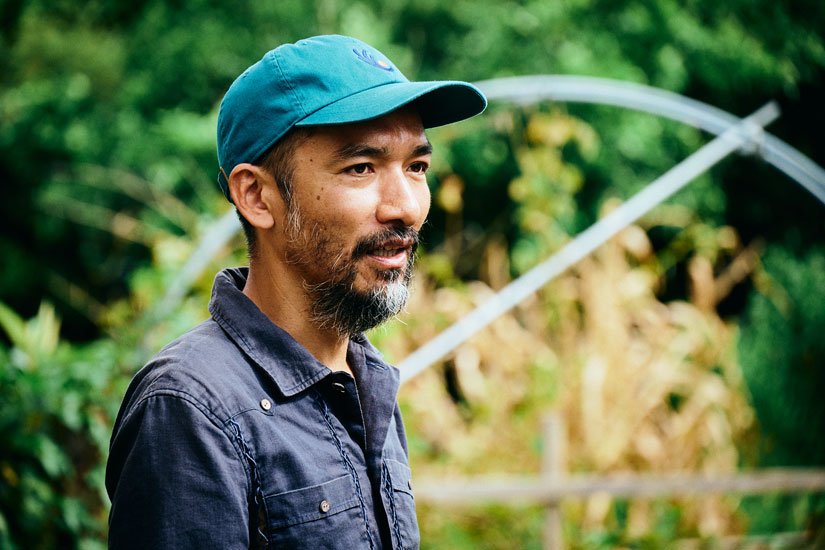While running his organic dried fruit import and sales business “AMBESSA,” he is self-sufficient in food through natural cultivation, uses solar power for energy, and builds his own store. Mr. Kimishima continues to acquire the “zest for life” in Minami-Boso that he learned on his travels around the world, and is quietly questioning how he should live and work in the future.
Visit “Abyssinia,” AMBESSA’s directly managed grocery in Minami-Boso
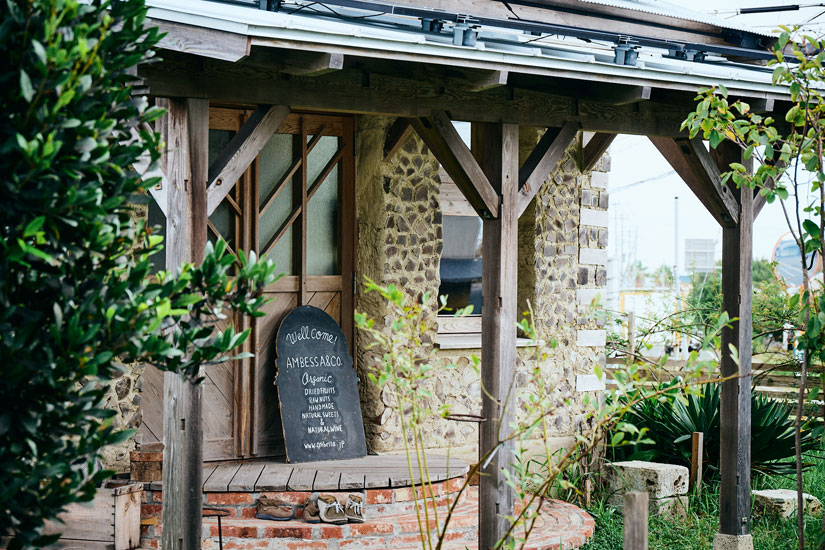
The southern part of Boso Peninsula is one of the warmest areas in Chiba Prefecture, where citrus fruits and flowers are cultivated. In this area of southern Boso facing the Pacific Ocean, Mr. Kimishima lives with his wife, Aguri, and their two children. Although it is less than a 10-minute walk to the ocean, the gently rolling mountains of the Boso Hills approach the coast, with lush green satoyama mountains in the background. Standing as if blending in with the scenery of Minami-Boso is AMBESSA’s directly managed store, “Organic Grocery Abyssinia,” located on the grounds of the main building.
Incidentally, these store names are derived from the Rasta philosophy, which has greatly influenced Mr. Kimishima’s philosophy. The lion used as a symbol in various parts of Ethiopia, the starting point of this philosophy, is called AMBESSA in the ancient local language, and Ethiopia is called Abyssinia.
Building a “store that goes back to the soil.”
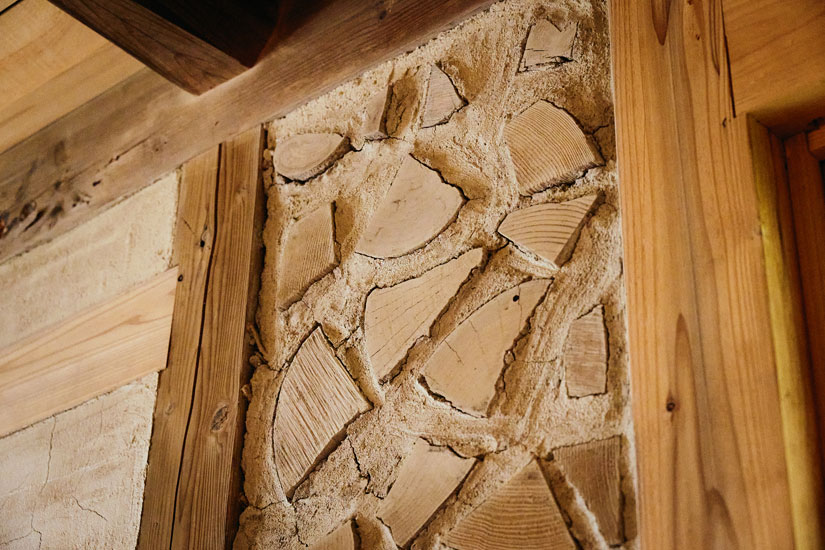
Abyssinia, which opened in 2018, was designed and built by Kimishima himself under the guidance of the architectural firm Koufurin in Isumi City, located in the central Boso Peninsula, using natural materials found in our daily lives, such as mountain clay, ocean sand, thinned wood, and rice husks.
It took about three and a half years and a lot of hard work to get it into shape, but I was able to maintain it myself and make it functional. For example, the thatch in the walls helps to insulate the building. He looks back on how his own experience of building with natural materials made him rediscover the qualities of Japanese traditional houses.
The “Back to the Soil” store sells organic dried fruits, nuts, spices, and herbs, as well as breads and baked goods made by Akuri.
Giving Value to Substandard Foods
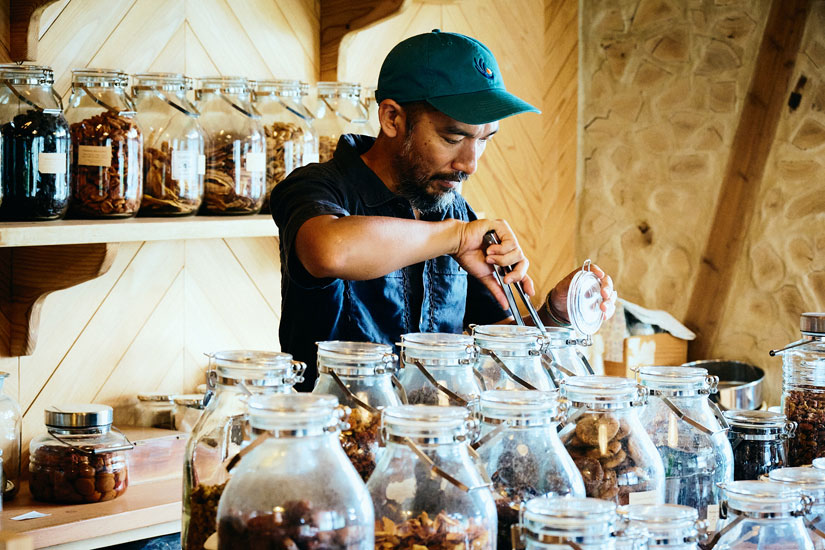
Kimishima-san recommended Abyssinia, a dried fruit made from apples grown naturally in Aomori Prefecture without pesticides or fertilizers, which is one of AMBESSA’s staple products. It is characterized by its delicate, sweet flavor and the rich nourishing taste that comes out with each munching.
The dried apples used for this product are originally small and flawed, and are considered out of standard in general distribution. Even though they are out of standard, the taste is certain. We buy such fruits and vegetables that cannot be distributed in the market and dry them to increase their value. Processing them into dried products is also a part of our efforts in this regard.
Dry processing of selected ingredients
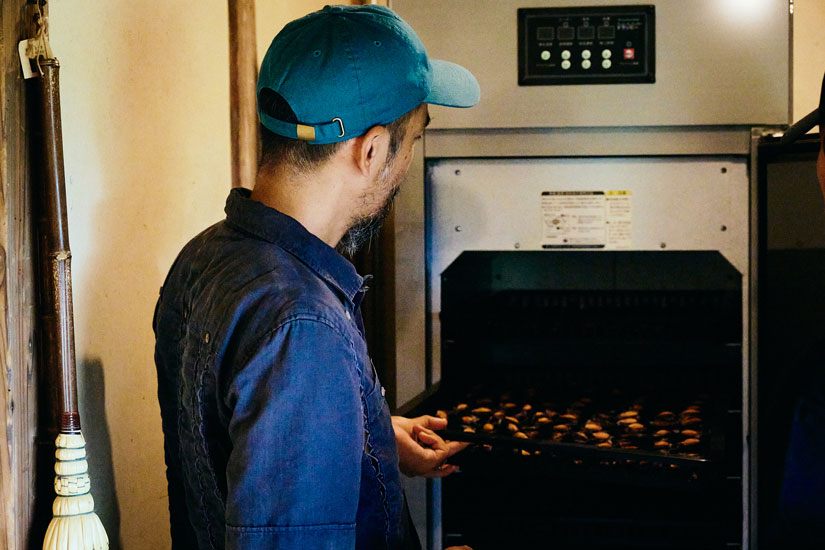
In 2010, AMBESSA began importing dried fruits and other agricultural products from overseas and distributing them to natural food stores and restaurants in Japan. In principle, products are grown without pesticides or chemical fertilizers, and are limited to those without additives or preservatives.
In recent years, in addition to tangerines, blueberries, raisins, prunes, and other fruits grown by the Kimishima family, the company has been increasingly using fruits from farms connected through acquaintances. These domestically grown fruits are dried in a dryer in his atelier.
The best moisture content is around 15%, but if the fruit is too dry, it will dry out and almost disappear, and if it is not dry enough, it will become moldy,” explains Kimishima. But if it is too dry, it will dry out and almost disappear, and if it is not dry enough, it will get moldy.
AMBESSA’s essential dried fruit is the date (jujube palm). In fact, it was a date that Mr. Kimishima encountered on a trip to North Africa that inspired him to start importing and selling dried fruits.
Bringing Dried Fruits to Japan
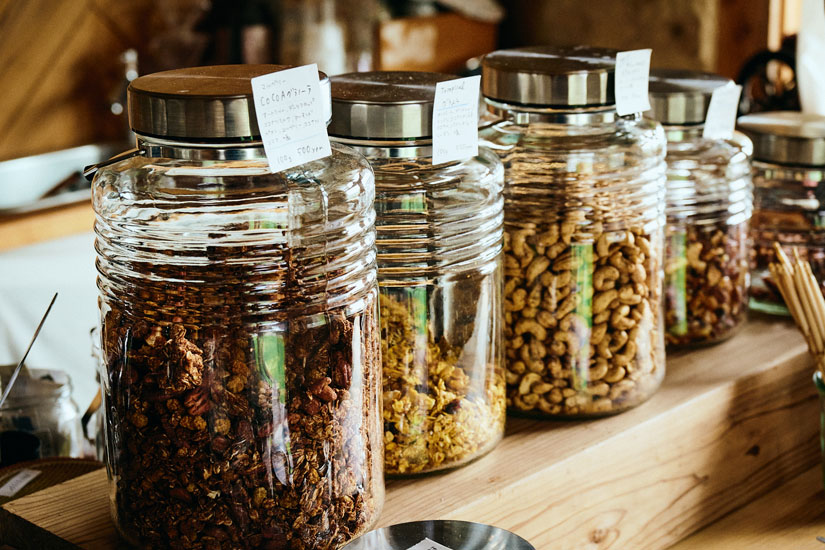
Mr. Kimishima was born in Fukagawa, Tokyo in 1977. When he was in his 20s, he worked part-time and whenever he had enough money saved up, he traveled around the world as a backpacker.
During his travels, he tasted dried dates from Tunisia and was surprised at how delicious they tasted. “At the time, there were no high quality organic dried fruits in Japan,” he said, and seeing the potential for business, he decided to start importing them. At the same time, however, Mr. Kimishima was not interested in dried fruit solely from a business standpoint. At the time, Mr. Kimishima was eating a vegetarian diet, and his interest in dried fruits was growing.
Living in Harmony with Nature in Central America
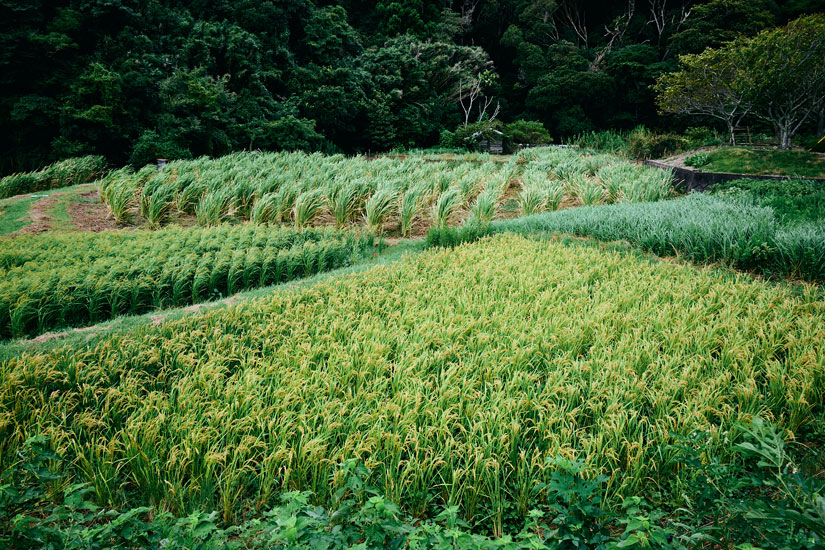
This was before his encounter with dates. During his trip to Central America, Mr. Kimishima stayed in a Rastafarian commune (a religious movement that emerged in the 1930s in Jamaica, mainly among the working class and peasants), which influenced reggae music and vegetarianism, and the experience of living in harmony with nature there greatly influenced his own philosophy. This experience greatly influenced his philosophy.
I felt that a way of life with nature, as in the Rastafarian commune, could provide hints for gradually solving various problems that society faces. I had a vague idea at the time that I might be able to convey this through products such as dried fruits. I also wanted to acquire the power to live like the people who helped me at the commune,” he said.
On a subsequent trip to Ethiopia, the starting point of the Rasta way of thinking, Mr. Kimishima positioned Ethiopia as the starting point of his own way of life.
Practicing a Self-Sufficient Lifestyle
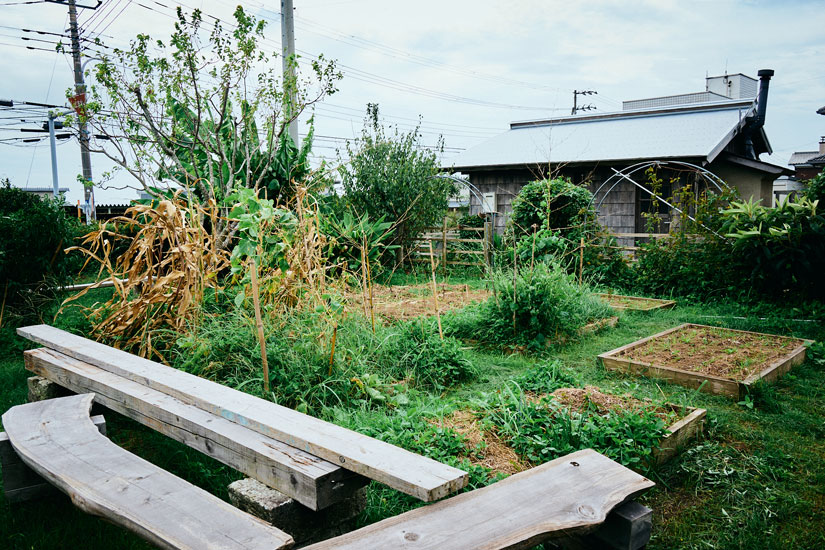
After returning from his trip, Mr. Kimishima started a new life in Minami-Boso, as Mr. Akuri’s parents lived in Chiba Prefecture. He renovated an 80-year-old traditional Japanese house, generating his own electricity with solar power and practicing natural farming without using any pesticides or fertilizers in the rice paddies and fields. He makes a living and earns his living with his own hands.
He grows rice such as Sally Queen, a variety that goes well with curry and paella. Rye is used to make the bread and Stollen that Mr. Akuri makes. Vegetables and fruit trees for self-sufficiency grow in the field behind the store, and after harvesting, he also picks seeds. She says, “We should increase what we can do for our own survival, rather than entrusting it to someone else through money. If we do this, I think our current society, which is difficult to live in, will become a little more enjoyable and in harmony with the earth.
Bringing the Joy of Living to the Next Generation
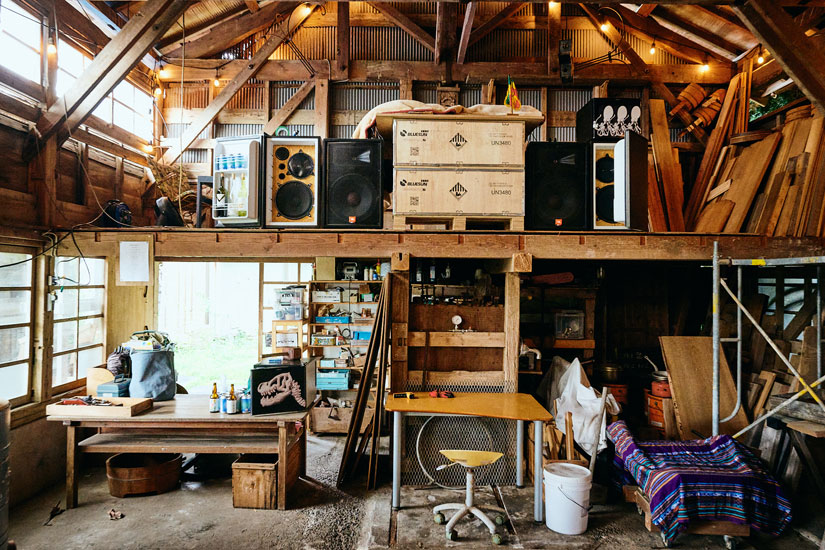
Mr. Kimishima also enjoys “fun” to the fullest. He even renovated a warehouse on his property and built a disco.
He says, “We use electricity generated by solar power to make sound, spin a mirror ball, and have dinner while drinking craft beer brewed by a friend of mine from our fruit. I play like that with my friends,” Kimishima says with a laugh. While trying to get people interested in AMBESSA’s efforts through its products, Kimishima hopes to “convert this into something fun and open up opportunities to directly communicate our thoughts and ideas.
In the future, Kimishima’s vision is to promote community-supported agriculture, or CSA, in which producers and consumers in the same community work together to reduce food loss and purchase and support produce. What we are doing is also for the sake of future generations. It’s not a pretty word, but we have to leave a rich natural environment for our children. I would like to work together with others who share this vision.
Living in Minami-Boso, Kimishima’s daily life makes him realize that he is alive today. Through delicious food, Mr. Kimishima and his colleagues provide us with an opportunity to think about what is the fundamental joy and pleasure of being human.



